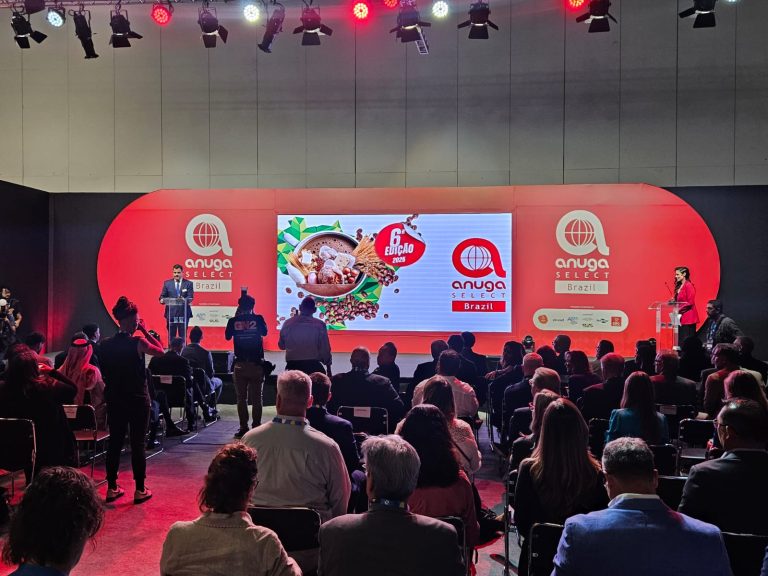São Paulo – The Anuga Select Brazil food fair was kicked off on Tuesday (8) at the Distrito Anhembi in São Paulo, highlighting the scale of the Brazilian food industry and the Latin American giant’s consumer market. The latter is particularly attractive to foreign suppliers in the sector, including Arab countries, which are participating as exhibitors.
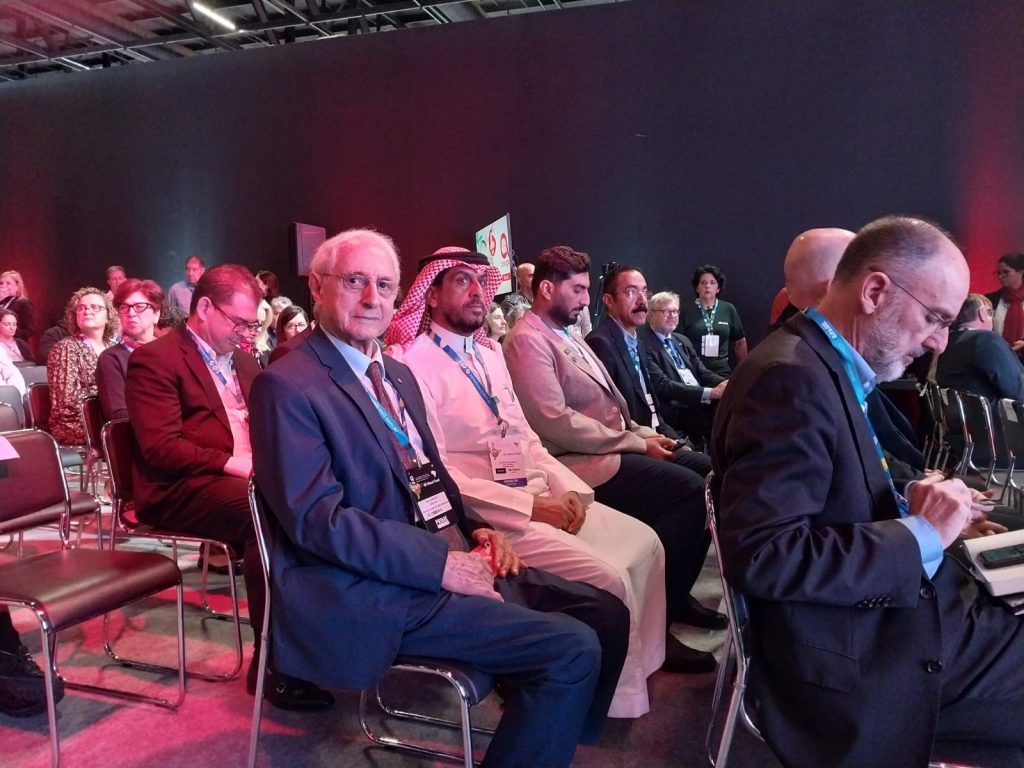
The Arab participation takes place in two spaces organized by the Arab-Brazilian Chamber of Commerce (ABCC), featuring companies from Palestine and Saudi Arabia specializing in dates and olive oils. The fair also includes individual stands from companies representing at least two Arab countries, Egypt and Tunisia, and hosts the Halal Zone, a space where Brazilian certifier FAMBRAS Halal provides information about the halal product market—products made in accordance with Muslim requirements.
At the opening of the exhibition, leaders in the food sector made it clear that Brazil aims to grow as a supplier of processed foods, which generate a greater value for the producing country compared to commodities. “Brazil’s always been recognized as the world’s breadbasket, and a few years ago, we started betting that the Brazilian industry should also become the world’s supermarket,” said João Dornellas, president of the Brazilian Association of the Food Industry (ABIA), during the opening ceremony.
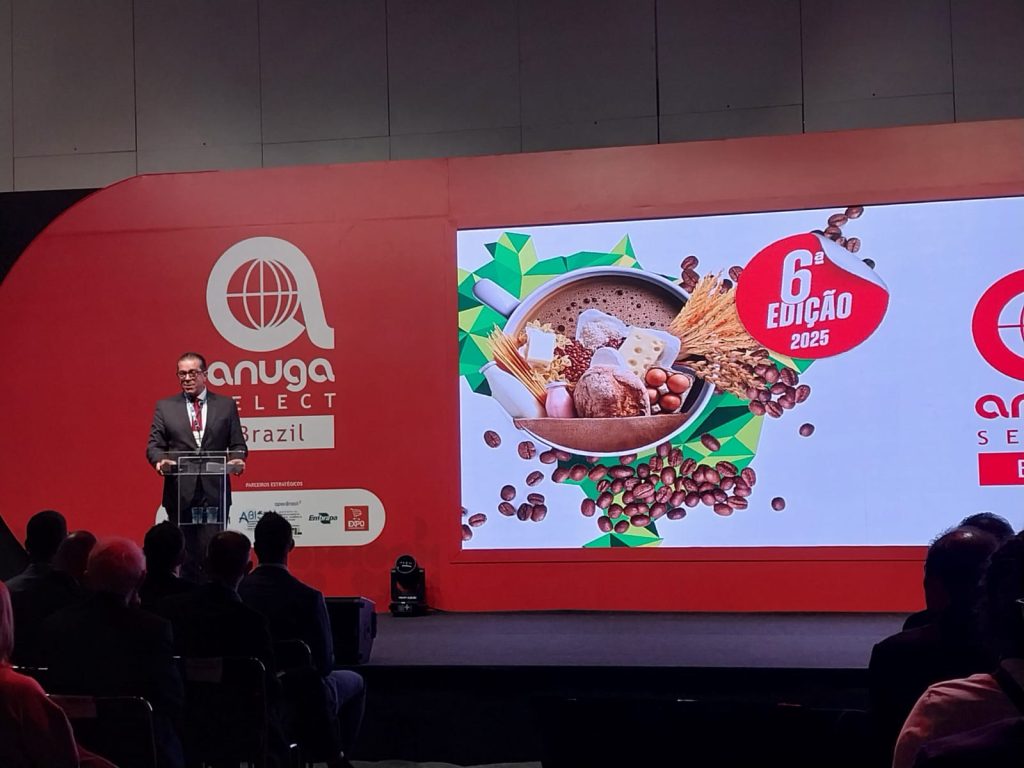
De acordo com Dornellas, o Brasil é já desde o ano de 2022 o maior exportador de alimentos industrializados do planeta. O País tem 41 mil indústrias de alimentos e bebidas, que geram mais de 2 milhões de empregos. Esse segmento produz 283 milhões de toneladas de alimentos por ano, das quais 73% são destinadas para atender o mercado interno e 27% vão para a exportação, chegando aos consumidores da Ásia, União Europeia e Liga Árabe, entre outros, segundo Dornellas.
A abertura foi feita por Beni Piatetzky, diretor-geral da Koelnmesse Brasil, que o fez falando dos investimentos previstos para o setor de alimentos no País, de R$ 120 bilhões até 2026, como um demonstrativo do bom momento do setor. Ele disse que o cenário favorável, sustentado pelo faturamento de R$ 1,2 trilhão do setor no País leva o evento (feira Anuga Select Brazil) para um patamar ideal de apresentação de novos produtos tanto por marcas nacionais como estrangeiras.
De olho nisso, a participação árabe se dá em segmentos em que a indústria brasileira não é autossuficiente e em que o mercado nacional é importador. É o caso dos azeites, que o Brasil tem produção incipiente, apesar de crescente, mas é grande importador. No caso das tâmaras, a introdução do consumo no Brasil é recente, mas há um grande esforço de companhias do Oriente Médio para ampliar as compras dos brasileiros, a partir do apelo fitness, e fazer suas marcas crescerem. A Anuga Select Brazil deste ano tem 20 pavilhões nacionais e 17 internacionais, contando com a presença de 38 países entre os expositores.
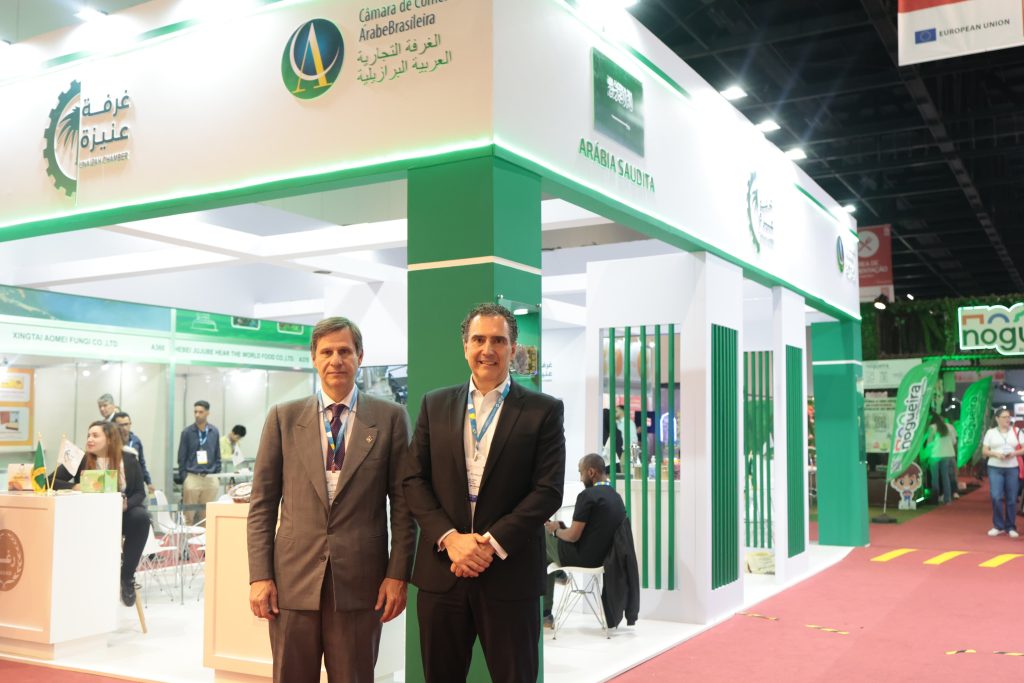
ABCC President William Adib Dib Jr. visited Anuga accompanied by International Relations Vice President & Secretary-General Mohamad Mourad. The president expressed satisfaction with the activity observed at the exhibition and optimism about the increasing Arab presence at trade fairs in Brazil. He also noted that this is a favorable moment for olive oil, a product showcased by Arab exhibitors at Anuga, due to the import tax exemption granted by the Brazilian government to control product prices in Brazil.
Dib also believes that the presence of Arab companies at Brazilian trade fairs is essential to showcase that Arab countries have much more to offer than just oil. “We want to highlight the diversity of the Arab world and how trade between Brazil and the region can expand significantly,” he said, encouraging Arab companies to use these fairs as a gateway beyond the Brazilian market. “Brazil is the entry point to Latin America,” he told ANBA.
Opening
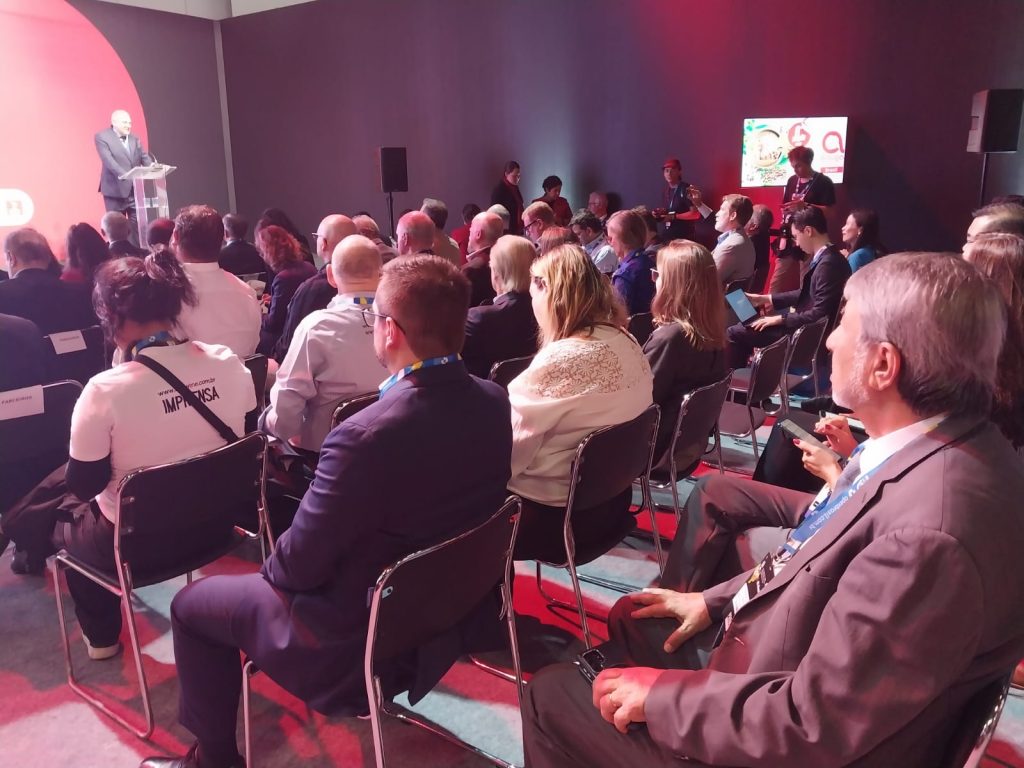
Some of the Arab countries participating in the fair were represented at the opening ceremony of Anuga Select Brazil, including the Palestinian ambassador to Brazil, Ibrahim Alzeben, who is also the dean of the Council of Arab Ambassadors in Brazil; authorities from Saudi Arabia’s Unaizah Chamber of Commerce and Industry; and leaders and executives from FAMBRAS Halal and the ABCC, the latter represented by its board member William Atui, institutional relations director Fernanda Baltazar, and institutional relations advisor Bassel Abou Latif.
Speaking at the ceremony, in addition to the mentioned representatives from ABIA and Koelnmesse Brasil, were other leaders from private sector associations and representatives from state and federal governments, including the governor of Rondônia, Marco Rocha. Koelnmesse Brasil is the event’s organizer and a subsidiary of Koelnmesse GmbH.



